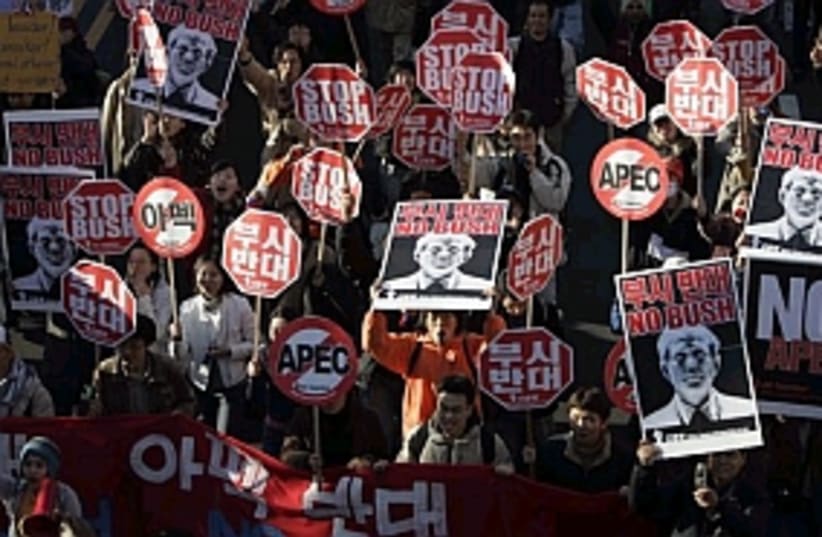| More about: | Asia-Pacific Economic Cooperation, George W. Bush, Hu Jintao, Vicente Fox |
APEC protesters clash with police
Asia-Pacific leaders discuss trade, terrorism and bird flu in S. Korea.


| More about: | Asia-Pacific Economic Cooperation, George W. Bush, Hu Jintao, Vicente Fox |